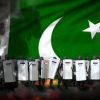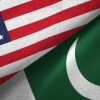For nearly a decade, the South Asian Association for Regional Cooperation (Saarc) has languished in a state of near paralysis. What once held promise as a platform for regional integration now exists in name only—frozen by geopolitical rivalries, particularly India’s refusal to engage with Pakistan. Since New Delhi boycotted the 2016 Saarc summit scheduled in Islamabad, the grouping has been unable to move forward. Other members, wary of confrontation, followed suit, effectively placing the forum in indefinite suspension.
Yet the idea of regional cooperation in South Asia remains as relevant—and urgent—as ever. The region’s staggering potential, in terms of trade, human development, and climate cooperation, cannot be allowed to wither due to bilateral animosities. This is precisely why recent speculation about a new bloc—possibly involving Pakistan, China, and Bangladesh—sparked considerable interest. The prospect of a regional arrangement that bypasses India was seen by some as both pragmatic and provocative. However, Islamabad’s public reiteration of its commitment to Saarc serves as a timely reminder: the ideal of inclusive regionalism still holds sway.
By reaffirming its support for Saarc, Pakistan has diplomatically passed the initiative back to India. It is now for New Delhi to decide whether it wishes to remain a bystander to South Asia’s stagnation or embrace the responsibility of leadership by re-engaging with its neighbours. The latter choice is the only path that holds long-term promise for collective progress.
Saarc was envisioned as South Asia’s answer to Asean—a space for economic and cultural cooperation despite political differences. But it has failed to live up to that vision. A key reason lies in its rigid charter, which mandates the presence of all member states for summits to proceed. India’s 2016 boycott, wielding this clause as a political lever, dealt a severe blow to the platform’s viability.
What is often forgotten, however, is that Pakistan once stood at a similar crossroads. In 1995, during heightened bilateral tensions, Prime Minister Benazir Bhutto expressed reluctance to attend the Eighth Saarc Summit in New Delhi. Yet Pakistan did not boycott the summit. Instead, then-president Farooq Leghari represented the country, ensuring the continuity of dialogue. It was a gesture that underlined a deeper understanding: that regional progress must not be held hostage to temporary hostilities.
Today, Pakistan continues to advocate for Saarc, viewing it as an essential vehicle to confront shared challenges—from poverty and food insecurity to climate change and trade barriers. The need for regional unity has never been more pressing. As the global economic order undergoes convulsions and competition for dwindling resources intensifies, South Asia cannot afford to be fractured.
India must ask itself: does it want to be remembered as the state that stymied a region’s progress, or as the force that helped unlock its collective potential? Re-engagement with Saarc will not resolve all disputes overnight, but it could lay the groundwork for a more stable, prosperous neighbourhood. If India continues to disengage, the region may be compelled to explore alternatives. Either way, South Asia must move forward—with or without New Delhi’s participation.








